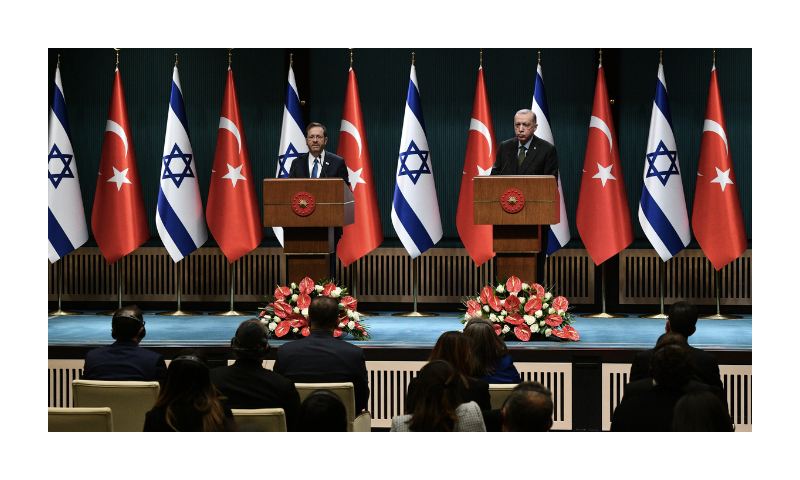Pietro Baldelli
Trends, Apr. 29, 2023
“This cooperation, however, even at times of greater détente, will not lead to the building of a strategic partnership or, even further, an organic alliance.”
On August 17, 2022, after a phone call between then Israeli prime minister Yair Lapid and Turkish President Recep Tayyip Erdogan, the two countries announced the full restoration of diplomatic relations. This decision ended the third degradation of bilateral relations, which began in May 2018, when Ankara decided to expel the Israeli ambassador following the clashes between Israeli forces and Palestinian demonstrators along the Gaza border. As was the case many times in the past two decades, that year the Palestinian issue was the main point of friction between Israel and Turkey, which from time to time pushed Turkish President Erdogan to adopt a harsh stance against Israel, in accordance not just with the new post-Cold War Turkish foreign policy course under his leadership, but also with the ideological milieu of Erdogan’s AKP party and AKP-led government. The Turkish-Israeli rapprochement came at the end of a lengthy negotiation that began in late 2020, when Turkish officials proved to be able to overcome the initial reticence of the Israeli counterparts, which at that time did not consider Turkey as a reliable partner, due to the aforementioned diplomatic crisis and the lack of confidence in Erdogan’s personal political leadership.
Transactionalism as a useful analytical tool to disentangle Turkish-Israeli interactions
The dynamic of normalization between Israel and Turkey, which has been ongoing over the last two years, is difficult to properly decipher if compared to the harsh words uttered by Turkish President Erdogan in 2017, when he came to define Israel as a “terrorist state”.[5] Nowadays, those words are all but a distant memory, as well as the direct response given to that statement by the then (and now) prime minister of Israel, Benjamin Netanyahu, who defined Erdogan as someone who “helps terrorists, including in Gaza, to kill innocent people.”[6] The contrasting tone of those statements to the new cooperative momentum undertaken in recent months in the bilateral relations of the two countries cannot be explained entirely by looking at solely the preferences or alternatively the biases of the political leaders – which do, of course, play a role to a certain extent.
… [To read the full article, click here]


